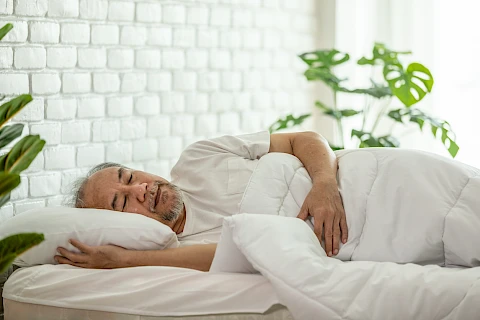
May is Better Sleep Month, a time dedicated to raising awareness about the importance of quality sleep and its impact on our overall health and well-being. This is particularly important for seniors, who may experience various sleep-related challenges due to aging and health concerns. Incorporating strategies that promote better sleep for seniors is a critical role caregivers must take seriously.
The Importance of Sleep for Seniors
Adequate sleep isn't just about feeling refreshed. It plays a significant role in maintaining health, boosting the immune system, and preserving cognitive functions. In seniors, sufficient sleep can help the body repair and reduce the risk of developing chronic conditions such as heart disease and diabetes. On the other hand, sleep deprivation can lead to an array of issues, ranging from mood disorders to impaired memory.
Establishing a Consistent Bedtime Routine
The body follows an internal clock known as the circadian rhythm. This natural cycle influences when we feel awake or sleepy. Help seniors align with this rhythm by establishing a regular sleep schedule. Establishing a regular sleep and wake cycle can help promote better sleep. Daytime activities, particularly exposure to natural light and engaging in physical exercise, can also support this routine and lead to more restful nights.
Creating a Comfortable Sleep Environment
The sleeping environment can impact sleep quality. Ensure the senior’s bedroom is dark, quiet, and cool. Invest in a comfortable, supportive mattress and pillow and high-quality, breathable bedding to create a sleep-friendly spot at home.
White noise machines are excellent for noisier households, suppressing sounds that can disrupt sleep. Blackout curtains can reduce light from interfering with sleep. However, some seniors might benefit from small night lights to help them navigate dark rooms.
Addressing Underlying Health Concerns
Common health issues among seniors, such as sleep apnea, arthritis, and anxiety, can disrupt sleep patterns. Regular health check-ups can help identify and address these concerns early. Medication can also influence sleep patterns. If a senior is struggling with sleep, a review of their medication by a healthcare professional could make a big difference.
How Caregivers Can Help
Caregivers play a vital role in promoting better sleep for seniors. They can assist in establishing sleep routines, creating a conducive sleep environment, and managing health concerns. Carers can encourage regular daytime activities, help create calming pre-bedtime rituals, and ensure the bedroom is set up for optimal sleep. They can also facilitate regular medical check-ups and liaise with healthcare professionals to manage sleep-related health issues. Often, the presence of a carer in the home is what a senior needs to feel secure and stress-free, both of which are integral for good rest.
Enjoy Personalized Senior Care at Senior Helpers
Ensuring seniors get the restful sleep they need is a team effort. With improved understanding and practical strategies, you can help promote better sleep for your elderly loved ones. If you’re in Portland, Beaverton, Gresham, Hillsboro, or Troutdale and could use some support in caring for a senior loved one, Senior Helpers Metro Portland North is always happy to help. We offer in-home senior care services, providing the support your senior needs to live a vibrant, independent life in the comfort of their own home. Contact us to learn more about how we can help.